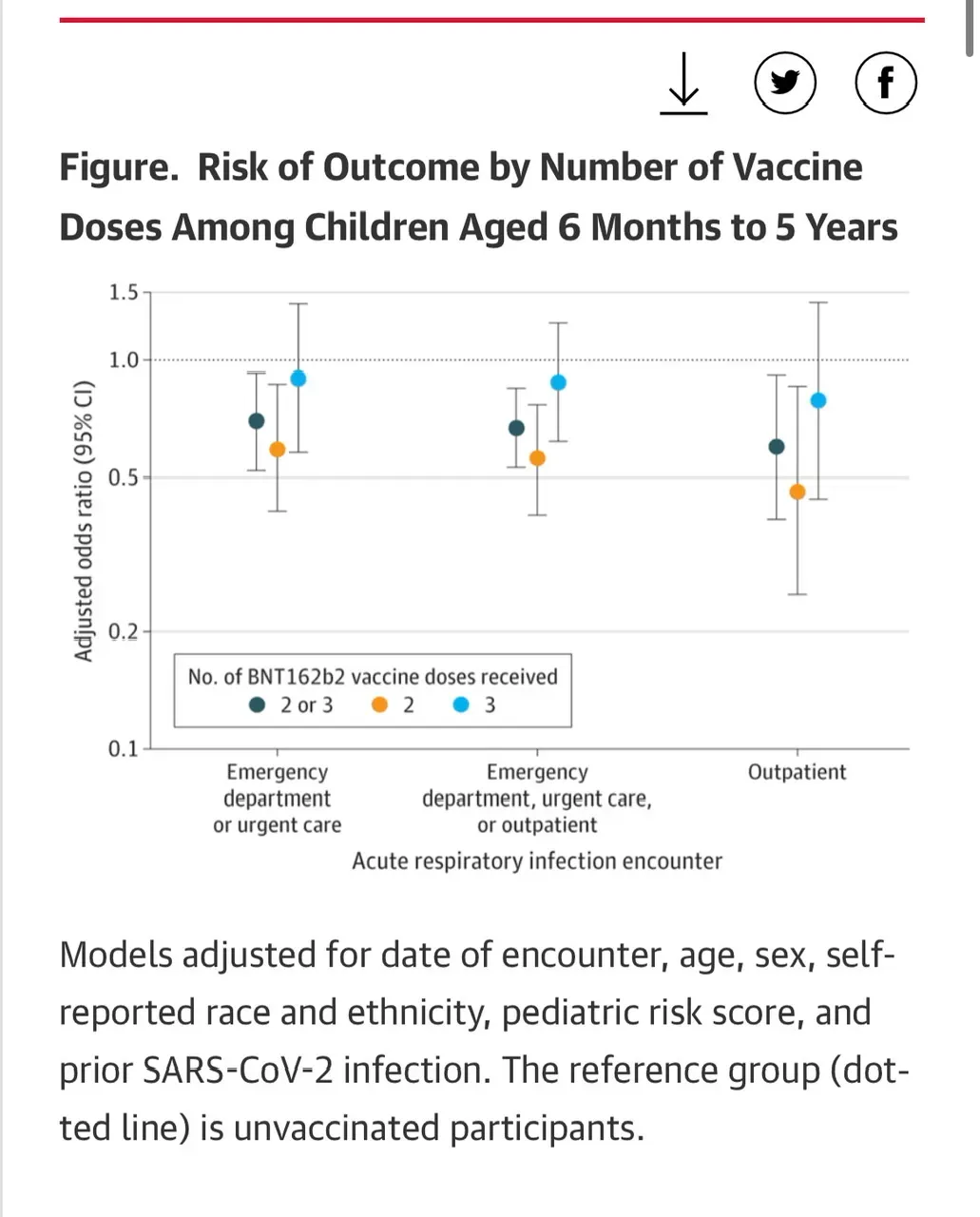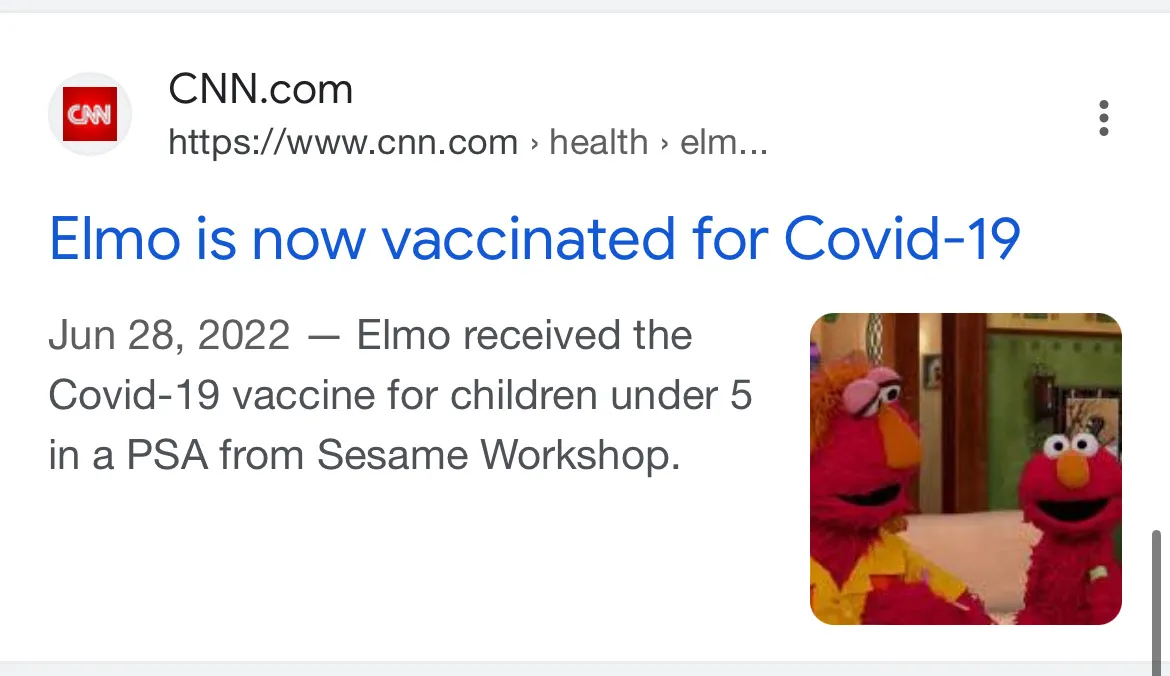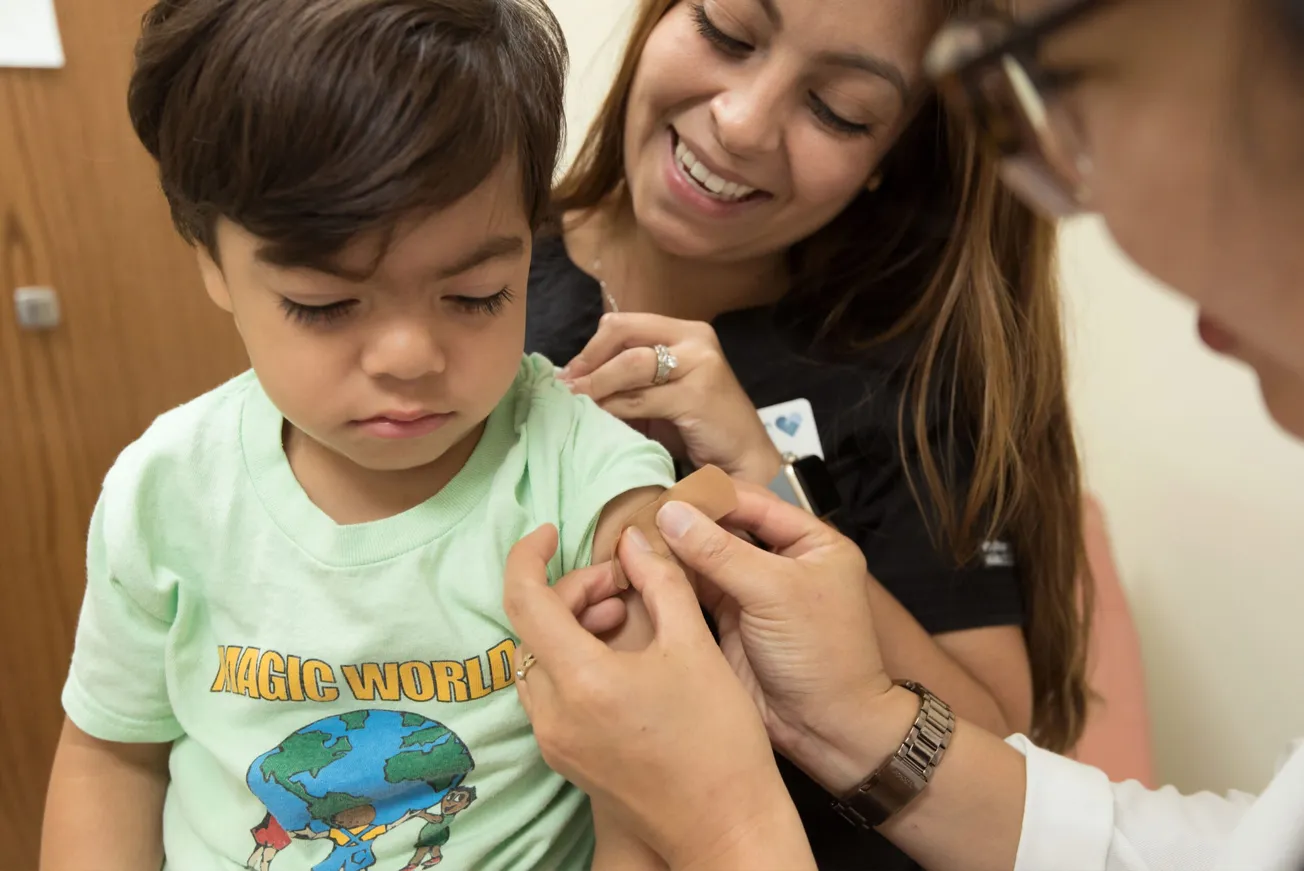Table of Contents
Alex Berenson
Alex Berenson is a former New York Times reporter and the author of 13 novels, three non-fiction books, and the Unreported Truths booklets. His newest book, PANDEMIA, on the coronavirus and our response to it, was published in November 2021.
The approved three-dose schedule of Pfizer Covid jabs for children under 5 did not reduce Covid-related medical visits in those kids, scientists reported Friday.
Covid jab advocates claim the shots help people avoid serious illness from Covid, though they offer brief protection – at best – against infection. But the new study suggested that the shots fail on that front too, and offer only risk and no benefit at all, at least in young kids.
Pfizer itself paid for the study, published as a “research letter” in the Journal of the American Medical Association.
The researchers, including one from Pfizer, tried to obscure the finding of failure for the standard regimen.
In the paper, they combined it with the results of an unapproved two-dose regimen that showed a modest benefit. They then reported the overall results for “at least two” doses.
That presentation is scientifically bizarre.
Pfizer, the Food and Drug Administration, and CDC all say a three-dose regimen is standard for young kids. That’s the dosing schedule Pfizer tested in its clinical trial.
If researchers chose to report results from kids who have received a partial vaccination in the vaccinated category, why did they not also include those who have received a single dose?
Instead, they failed to report the one-dose results at all.
Further, reporting two shots are protective while three are not lacks any biological plausibility. If the vaccine works, three doses should produce a stronger immune response than two.
In fact, Pfizer added a third dose to the standard regimen for young kids because it feared two shots were not working well enough. (The shots for young children contain less mRNA, the active ingredient that produces an immune response, than those for adults.)
But combining two shots with three did help the researchers in one way – it allowed them to relegate the failure of the approved dosing schedule to a single line in the paper.
This chart looks more complicated than it is.
See the blue dots? Those are the ones that matter.
Those are the ones that represents the risk to kids who took the shots the way Pfizer and the Centers for Disease Control recommended. See how all three blue dots are basically stuck at the 1.0 horizontal line?
Now see how the top end of the brackets around the blue dots are above the line? Those brackets are the “confidence intervals.” If they’re above 1, no one can say whether the shots help, do nothing, or hurt – at least based on this study. And they are WELL above 1.

The study’s finding comes only days after the Centers for Disease Control again began pushing Covid mRNA jabs on kids, a recommendation few other countries make.
Since regulators authorized the shots for young kids last year, most parents have rejected them. Only about 2 million kids, or 10 per cent of American children under five, have received even one mRNA jab, according to the CDC. Of those, barely half have completed their three-shot primary series.
From the beginning, the effort to approve and promote the mRNAs in young children has been troubled.
In December 2021, after Pfizer had started the big clinical trial needed to approve the shots for young kids, the company added a third dose to the dosing schedule. That change violated basic rules of clinical trial design, which say the drug regimen has to be “pre-specified” before the trial starts or results are collected.
But the Food and Drug Administration allowed the trial change. Then, in June 2022, it authorized the Pfizer vaccine for those kids “as a primary series of three doses.” The CDC agrees the three-dose regimen is the standard.
The FDA authorization set off a massive government campaign, eagerly abetted by the elite media and the primary lobbying group for paediatricians, to push the shots.
(ELMO LOVES MRNA! SO DOES CNN!)

But within weeks, it was clear that parents had overwhelmingly rejected the jabs, even in blue states. Vaccine advocates then said they expected young children to receive the shots at standard well-child pediatric visits in fall 2022, but uptake remained dismal.
Still, the CDC has not stopped pushing the shots on young kids. It did so again last week, recommending all children six months and older, as well as all adults, get a Covid booster this fall. On its Website, the CDC claims the shots are safe and “prevent children from getting seriously sick if they do get COVID-19.”
That is the theory the new study was designed to examine, using a model called test-negative design.
The researchers checked the records of 177,000 emergency department, urgent care, and outpatient medical visits in Southern California for young kids with respiratory infections from July 2022 through May 2023. The visits included 24,000 in which Covid tests were given, with 2,300 positive findings.
In other words, Covid accounted for barely 1 per cent of all 177,000 visits for respiratory infections. No surprise, as Covid is generally very mild in young kids.
But within the group of kids who were tested and found to have Covid, kids who had received three mRNA shots were just as likely to have Covid as a cause of their visit as those who had none.
So three shots did nothing to keep young kids from needing medical attention for Covid.
What will it take for the CDC to admit defeat?









